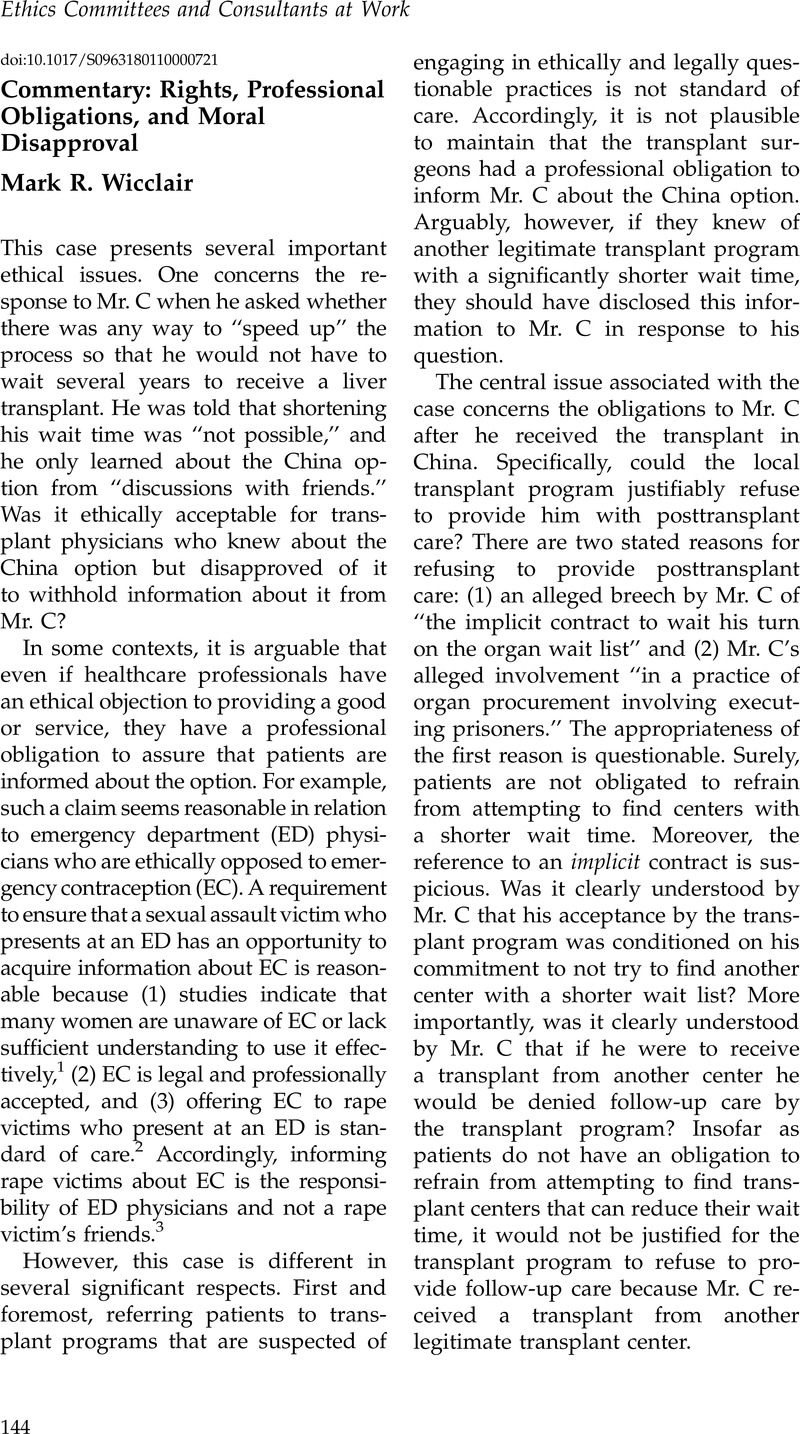No CrossRef data available.
Article contents
Commentary: Rights, Professional Obligations, and Moral Disapproval
Published online by Cambridge University Press: 11 January 2011
Abstract

- Type
- Ethics Committees and Consultants at Work
- Information
- Copyright
- Copyright © Cambridge University Press 2011
References
1. Foster, DG, Harper, CC, Bley, JJ, Mikanda, JJ, Induni, M, Saviano, EC, et al. Knowledge of emergency contraception among women aged 18 to 44 in California. American Journal of Obstetrics and Gynecology 2004;191:150–6CrossRefGoogle ScholarPubMed; Abbott, J. Emergency contraception: What should our patients expect? Annals of Emergency Medicine 2005;46(2):111–3CrossRefGoogle ScholarPubMed; Merchant, RC, Casadei, K, Gee, EM, Bock, BC, Becker, BM, Clark, MA. Patients’ emergency contraception comprehension, usage, and view of the Emergency Department role for emergency contraception. Journal of Emergency Medicine 2007;33(4):367–75CrossRefGoogle ScholarPubMed.
2. An American College of Emergency Physicians policy statement entitled, “Management of the Patient with the Complaint of Sexual Assault,” states: “A victim of sexual assault should be offered prophylaxis for pregnancy and for sexually transmitted diseases, subject to informed consent and consistent with current treatment guidelines.” Available at http://www.acep.org/practres.aspx?id=29562 (last accessed 29 Jun 2010).
3. It may be possible to accommodate an ED physician’s conscience-based objection to informing rape victims about EC if there is a mechanism in place to ensure that all rape victims who present at the ED have an opportunity to acquire information about EC.
4. I explain and defend ethical constraints on conscience-based refusals by individual providers and institutions in Conscientious Objection in Health Care: An Ethical Analysis. Cambridge, UK: Cambridge University Press, 2011Google Scholar.




